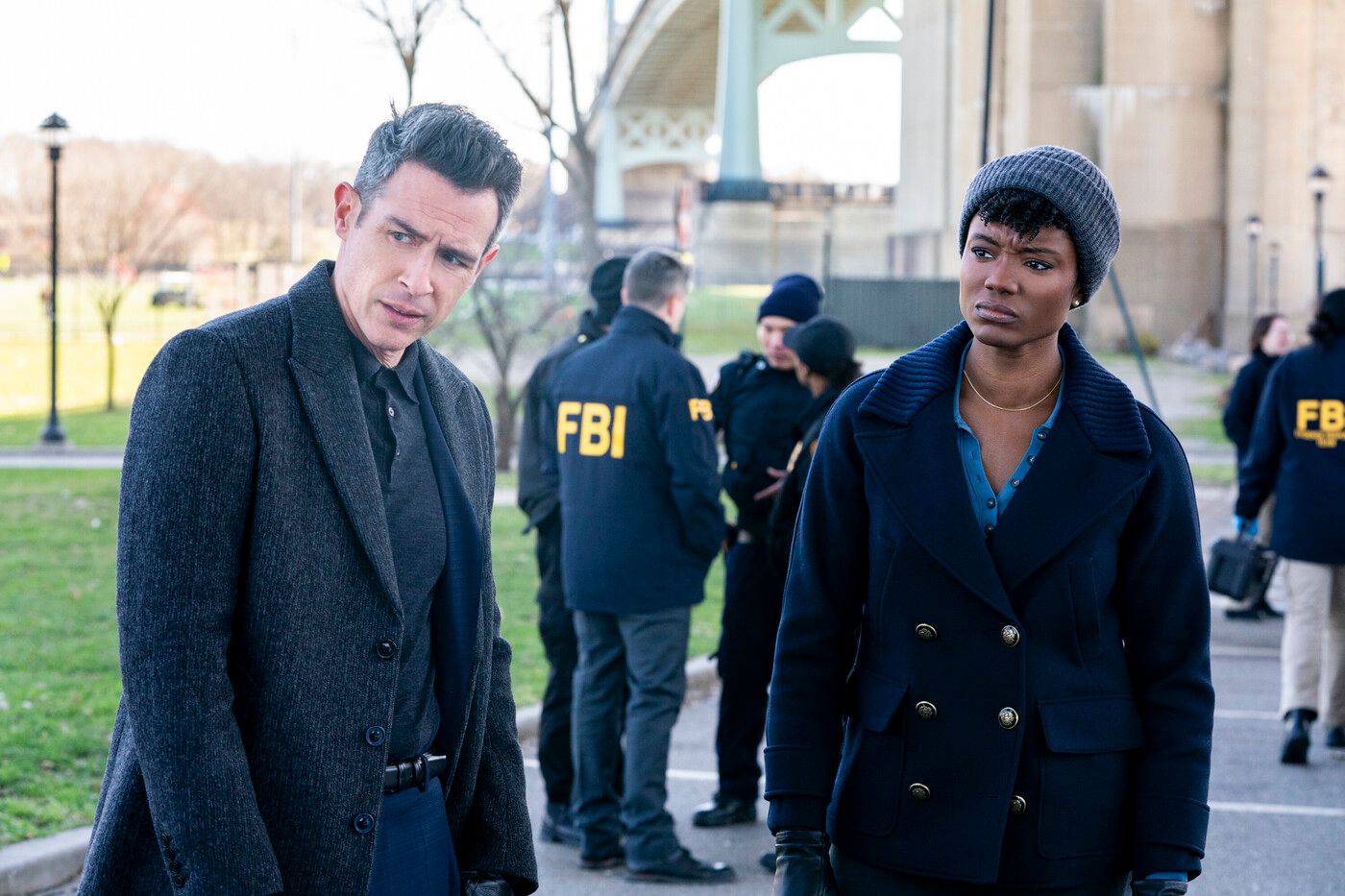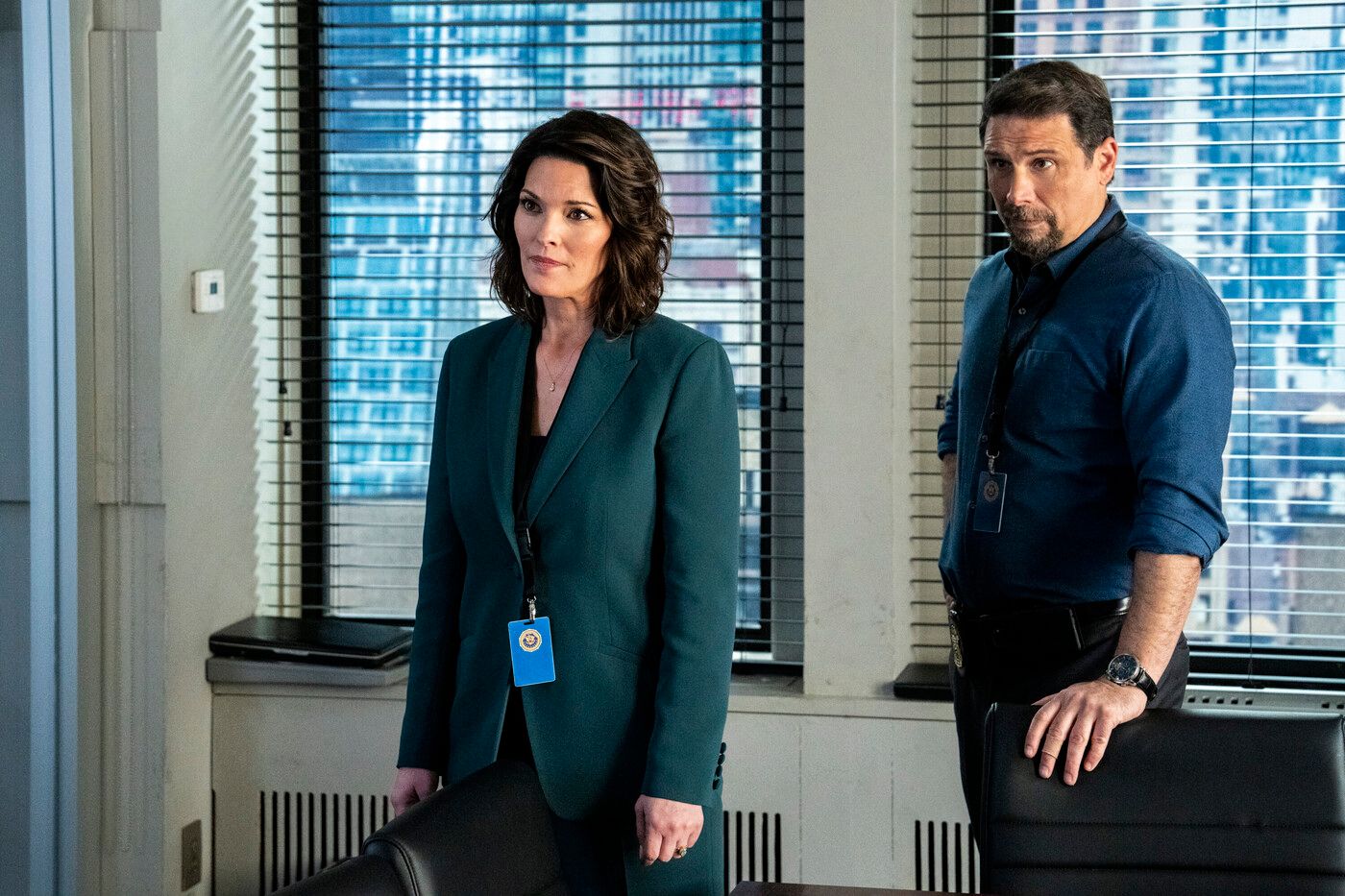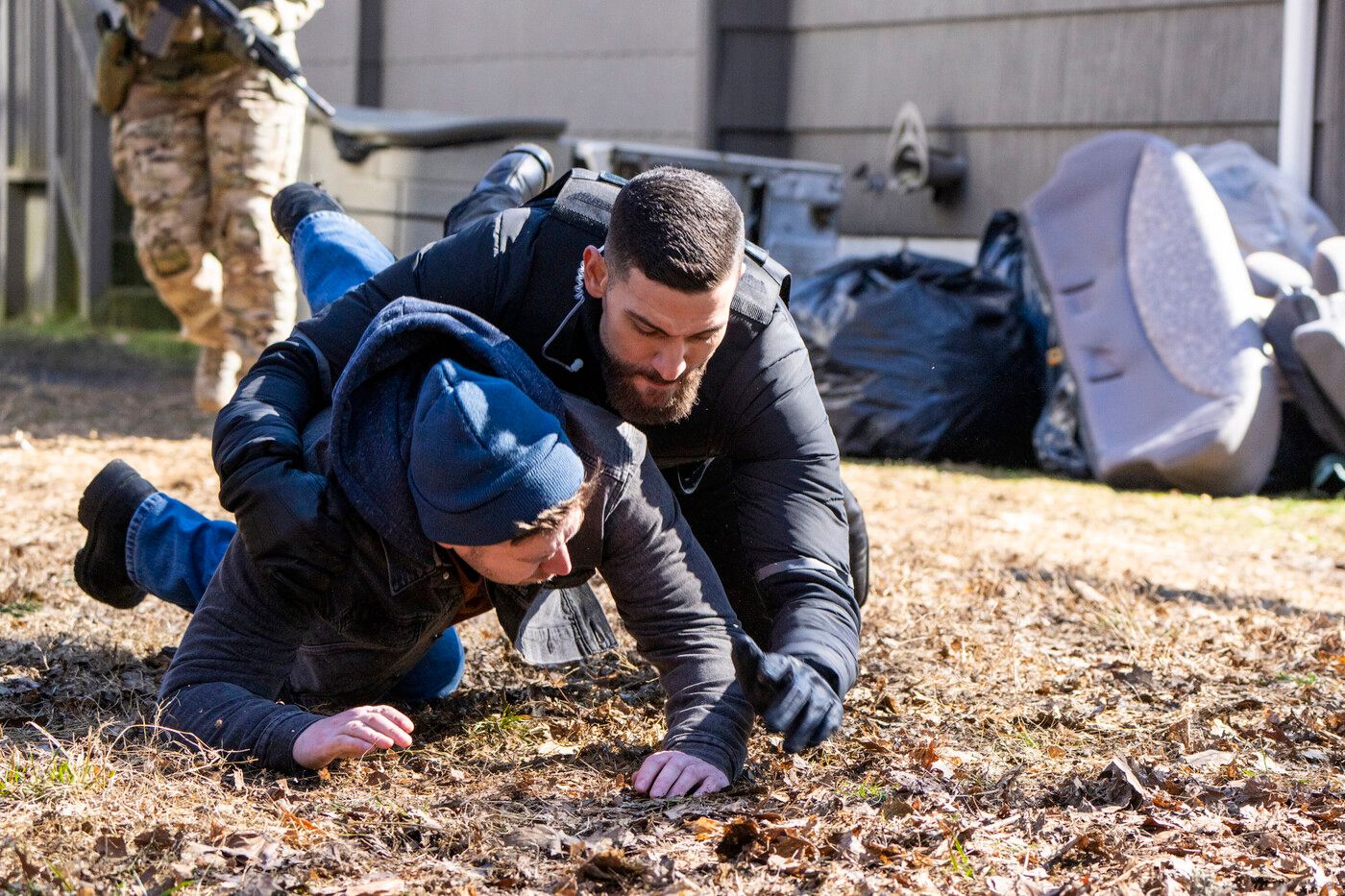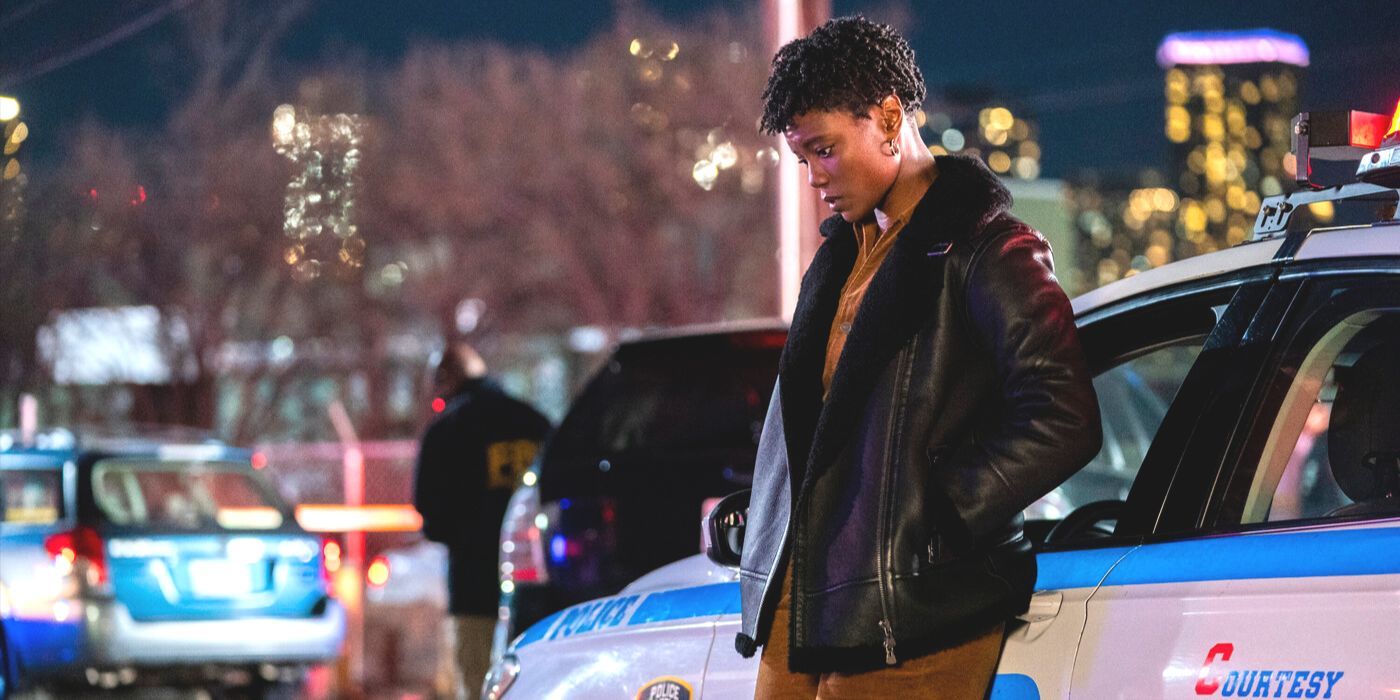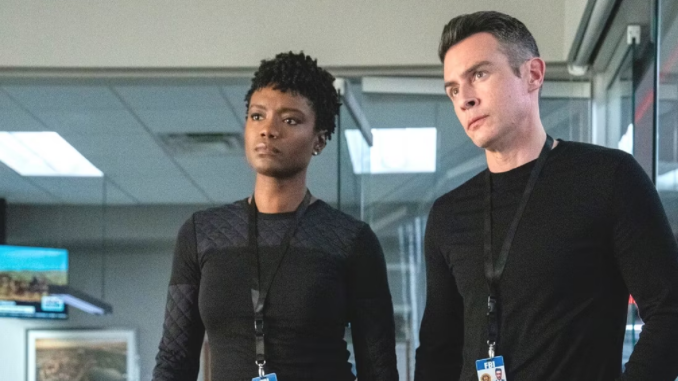
FBI Season 6, Episode 8, “Phantom” has great intentions for Agent Tiffany Wallace — but never quite reaches where it wants her to go. As written by showrunner and Dick Wolf universe veteran Rick Eid, “Phantom” picks up the narrative thread of Hobbs’ murder and explores the continued effect his death has on Tiffany. Yet the episode pulls its punches as it tries to fit her emotional journey into one 42-minute space.
Coincidentally airing on the day that the entire FBI franchise was renewed, “Phantom” does show why CBS wants to keep the flagship show around until at least Season 9. The original FBI has the strongest cast out of all three shows, and is one of the best ensembles in Wolf’s whole portfolio. This episode reinforces that; it just doesn’t take the big leap that the performances would easily support.
FBI’s Murder Mystery Isn’t One at All
Episode’s Pacing Surpasses Most Network TV Dramas
It’s worth noting that Rick Eid is the former showrunner of Chicago P.D. and also currently overseeing the Law & Order revival, because what FBI does in “Phantom” unintentionally illustrates what makes this Dick Wolf franchise different from the other two. The initial minutes of this episode seem like just another case of the week, as Maggie Bell and partner OA Zidan probe the murder of James Sun. When one of Sun’s Army colleagues reveals that the victim was an ammunition specialist and disgruntled about being passed over for promotion, the viewer can guess where the story is going. Sun’s explosives are now in the wrong hands.
However, “Phantom” speeds up the plot significantly. If this were an episode of Chicago P.D., the Intelligence Unit would spend the whole hour identifying the killer, tracking them down and then make an action-packed arrest, because the scope of that show is different and its stories are more about the chase. But in FBI, the audience knows the suspect before the team does, he quickly winds up in handcuffs and near-immediately confesses to the crime. That’s because it’s getting the details out of the way for the core, character-driven plot of Tiffany wanting revenge for the death of Agent Trevor Hobbs, who was shot by al-Shabaab leader Hakim Siran earlier in Season 6. FBI leads with its characters more effectively than Chicago P.D. does, and Law & Order is well-known to favor story over character development.
As soon as “Phantom” drops the connection between Sun’s death and al-Shabaab, that’s when the episode starts to mean something. It sets an obvious goal of exploring Tiffany’s guilt over Hobbs’ death and asking how far she’ll go to get revenge. It’s a relatable and poignant concept but the episode doesn’t completely tap into it, instead circling back to a predictable TV crime drama ending.
FBI Focuses in on Special Agent Tiffany Wallace
Katherine Renee Kane and John Boyd Carry the Episode
The obvious requirement to doing a TV episode centered heavily on one character is that the actor playing that character basically has to carry the entire production. Katherine Renee Kane is not only in the majority of the scenes in “Phantom,” but her character Tiffany Wallace is also the focus of most of those scenes — whether physically or because she’s being spoken about. FBI lost something special when Ebonée Noel didn’t return for Season 3, but Kane has proven over four seasons that she’s a capable replacement. She’s asked to play a whole range of emotion over the hour: sadness, anxiety, anger, paranoia. An interesting aspect of Eid’s script for “Phantom” is that it allows the viewer to become concerned for and even frustrated by Tiffany’s behavior; the audience isn’t expected to blindly agree with her. Tiffany is very much in her own world throughout, and that reflects in Kane’s acting, as her character’s interactions with the rest of the FBI cast feel disjointed.
John Boyd also gets added screen time as Tiffany’s partner Stuart Scola attempts to check in on her, and how far Boyd has come since he played junior FBI agent James Aubrey in the final three seasons of FOX’s popular crime drama Bones. Scola would eat Aubrey for breakfast, and Boyd is the grounding presence that balances out Kane’s more high-energy performance. His expressions in the scene where Scola and Tiffany argue about whether or not Hakim is inside a nightclub say far more than the dialogue does; the audience can tell that he doesn’t quite believe her, and that he’s worried about how this is affecting her.
Yet this is where “Phantom” struggles, because the emotional moments between Tiffany and Scola are relatively understated. His initial attempt to approach her when she’s looking at photos of Hobbs’ death is basically waved off, and a later confrontation between the two of them has bite but it’s not charged enough given all that’s at stake. FBI has a chance to remedy this when Scola is asked point-blank about Tiffany’s fitness for duty — in front of her, no less — but he never has to answer. It feels like Kane and Boyd could have taken the tension between their characters up another notch, but the episode doesn’t give them a chance to truly be on opposite sides.
Is FBI Season 6’s ‘Phantom’ Worth Watching?
A Major Plot Thread Is Left Dangling for Future Use
“Phantom” is a solid episode of FBI because it’s built on a relatable theme — even if that theme isn’t uncommon in TV crime dramas — and because that premise is carried so well by the actors at its core. Kane lets Tiffany unravel in front of the viewers, and Boyd is there to keep her and the entire episode from spinning out of control. A special mention goes to Alana de la Garza, because Isobel Castille says all the things that should be said in this scenario. She warns Tiffany not to jump to conclusions, and when she does anyway and all of this leads to a suspect’s death, she insists on holding Tiffany to account. “Phantom” would have been a much more satisfying episode if Isobel had played a bigger part and the story had been about Tiffany making a mistake and facing the fatal consequences that came with that mistake. That would have also been an interesting journey to take Tiffany on in the remainder of Season 6.
FBI had a chance to probe the long-term effects of Tiffany’s grief and tell an unconventional narrative by allowing her to be flawed and to talk about what that means. “Phantom” is very much let down by eschewing that and reverting back to a case of the week-esque trope. When Jubal interrupts Isobel’s meeting with Scola and Tiffany, it takes away the emotional breaking point of Scola having to be painfully honest about his partner — to her face. His revealing that Hakim may be in the United States after all, and that Tiffany was right all along, feels like a retroactive pass for all of her erratic behavior. None of the risks she took or orders she broke matter now, and her personal situation may take a back seat to chasing the big bad. It’s a shame, because there’s a lot more to be said about Tiffany Wallace. Even her final scene, in which she shows up to tell Hobbs’ widow Jennifer the news, proves that Tiffany needs to be figured out more — by herself and by the series. “Phantom” is well worth the time, but it could also have been one of FBI‘s best episodes if it had dared to.
